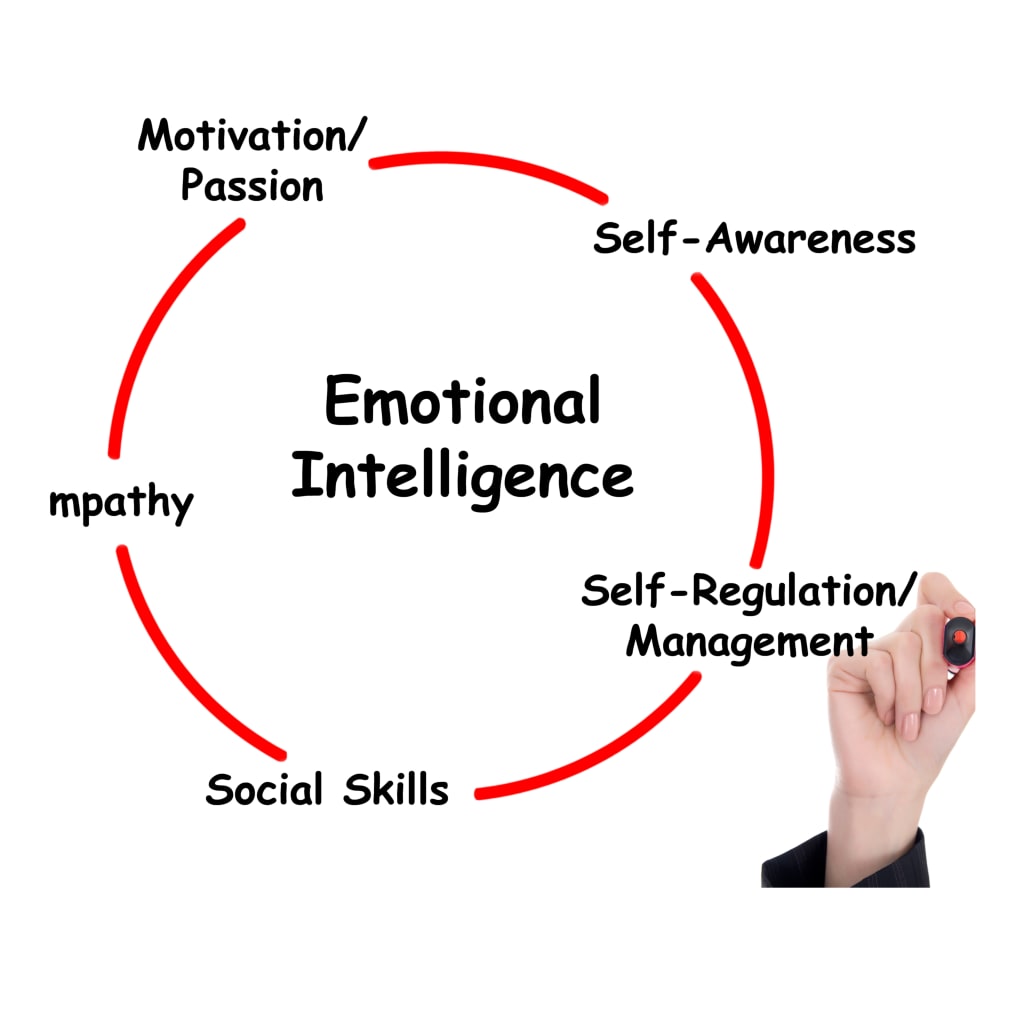The Role of Emotional Intelligence in Effective Communication in the Workplace
"The Power of Empathy: Building Stronger Connections in the Workplace"

The Role of Emotional Intelligence in Effective Communication in the Workplace
Effective communication is a cornerstone of success in the workplace. It enables collaboration, fosters understanding and builds strong relationships among team members. While technical skills and knowledge are important, emotional intelligence plays a critical role in enhancing communication effectiveness. In this article, we will explore the significance of emotional intelligence in workplace communication and provide real examples to illustrate its impact.
Understanding and Empathy
Emotional intelligence encompasses the ability to understand and empathize with others' emotions. This skill is crucial in workplace communication because it allows individuals to perceive and interpret verbal and non-verbal cues accurately. When team members have a high level of emotional intelligence, they can understand the feelings and perspectives of their colleagues, leading to more meaningful and empathetic interactions. For example, consider a team meeting where a member appears upset. An emotionally intelligent colleague would recognize the signs of distress, approach them with sensitivity, and offer support or assistance.
Conflict Resolution
Conflicts are inevitable in the workplace, but emotional intelligence can contribute to effective resolution. Individuals with high emotional intelligence can navigate conflicts by managing their own emotions and constructively responding to others' emotions. They can create a safe space for open dialogue by staying calm and empathetic during conflicts, actively listening to different viewpoints, and finding mutually beneficial solutions. For instance, imagine a situation where two team members have differing opinions on a project approach. An emotionally intelligent team leader would encourage open discussion, acknowledge each person's perspective, and facilitate a compromise that satisfies both parties.
Building Trust
Trust is essential for fostering collaboration and effective communication in the workplace. Emotional intelligence plays a pivotal role in building and maintaining trust among team members. When individuals demonstrate emotional intelligence by being authentic, transparent, and respectful in their interactions, they earn the trust and respect of their colleagues. Trust allows for open communication, constructive feedback, and a willingness to take risks together. For example, a manager who exhibits emotional intelligence would create an environment where team members feel comfortable sharing their ideas, concerns, and feedback without fear of judgment.
Non-Verbal Communication
Emotional intelligence encompasses the ability to interpret and respond to non-verbal cues effectively. In face-to-face or virtual interactions, non-verbal communication, such as facial expressions, body language, and tone of voice, can convey more than words alone. Individuals with high emotional intelligence can accurately interpret these cues, enabling them to understand the underlying emotions and respond accordingly. For instance, during a presentation, an emotionally intelligent audience member would recognize the speaker's nervousness and offer to encourage non-verbal cues, such as nodding and smiling, to boost their confidence.
Active Listening
Active listening is vital to effective workplace communication, and emotional intelligence plays a significant role in cultivating this skill. Emotionally intelligent individuals focus on listening attentively, seeking to understand rather than just respond. They pay attention to verbal and non-verbal cues, validate others' emotions, and provide thoughtful responses. For example, during a team discussion, an emotionally intelligent team member would actively listen to their colleague's ideas, ask clarifying questions, and demonstrate a genuine interest in their perspective.
Feedback and Coaching
Emotional intelligence contributes to providing constructive feedback and coaching in the workplace. Individuals with high emotional intelligence can deliver feedback sensitively and constructively, considering the impact of their words on others' emotions. They balance honesty with empathy, focusing on growth and improvement rather than blame. For instance, an emotionally intelligent manager would provide feedback by highlighting strengths, offering specific suggestions for improvement, and providing support to help their employees achieve their goals.
Practice Self-Awareness: Take time to understand and reflect on your own emotions, strengths, and areas for improvement. Self-awareness is the foundation of emotional intelligence and allows you to better manage your emotions and communicate effectively.
Cultivate Empathy: Put yourself in others' shoes and try to understand their perspectives, feelings, and challenges. Empathy helps you connect with colleagues on a deeper level and fosters a more compassionate and inclusive work environment.
Develop Active Listening Skills: Truly listen to others without interrupting or formulating responses in your mind. Show genuine interest, maintain eye contact, and ask clarifying questions to demonstrate your attentiveness and understanding.
Manage Stress and Emotions: Learn to identify and manage your stress and emotions effectively. Practice techniques such as deep breathing, mindfulness, or seeking support from colleagues or mentors when needed. By managing your own emotions, you can respond to others with composure and clarity.
Seek Feedback and Learn from It: Be open to feedback from colleagues and supervisors. Embrace constructive criticism as an opportunity for growth and improvement. Actively seek feedback to gain different perspectives and enhance your self-awareness.
Build Relationships: Invest time and effort in building positive relationships with your colleagues. Connect on a personal level, show appreciation, and be supportive. Strong relationships facilitate effective communication and collaboration.
Adapt Your Communication Style: Recognize that different individuals have varying communication preferences. Adapt your communication style to match the needs of others, whether it's using more visuals, adjusting your tone, or choosing the right medium (e.g., email, in-person, video call) for effective communication.
Practice Emotional Regulation: Learn to manage and regulate your emotions, particularly in high-pressure situations. Avoid reacting impulsively or emotionally, and instead, take a step back, assess the situation, and respond thoughtfully.
Seek Out Mentors or Role Models: Identify individuals who excel in emotional intelligence and effective communication. Learn from their approaches, observe their behaviors, and seek their guidance and mentorship.
Continuous Learning: Embrace a mindset of continuous learning and improvement. Attend workshops, read books, listen to podcasts, or take courses on emotional intelligence, communication skills, and related topics. This ongoing investment in self-improvement will contribute to your overall success in the workplace.
By incorporating these tips into your daily interactions, you can enhance your emotional intelligence, improve your communication skills, and create a more harmonious and productive work environment. Remember, developing emotional intelligence is a journey that requires consistent effort and practice, but the rewards are invaluable.
In conclusion, emotional intelligence plays a crucial role in effective communication in the workplace. By understanding and empathizing with others, resolving conflicts constructively, building trust, interpreting non-verbal cues, practicing active listening, and delivering feedback with empathy, individuals can enhance their communication skills and foster a positive work environment. Developing and nurturing emotional intelligence is a valuable investment that leads to stronger relationships, improved collaboration, and overall success in the workplace.






Comments
There are no comments for this story
Be the first to respond and start the conversation.